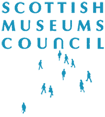
To create a confident national climate for collections development, information about individual holdings and collecting aspirations needs to be more widely shared and more easily accessed. The sector will then be better placed to progress its aim for a more co-ordinated approach to collecting and rationalisation.
Museums Association’s Code of Ethics
http://www.museumsassociation.org/ma/10934
For information on ethical good practice associated with sharing collections information, acquisition and disposal see the MA’s Code of Ethics (2001).
Model Acquisition and Disposal Policies
Within individual museums, an agreed acquisition (collecting) and disposal policy is a key working document which can be used to focus the organisation’s forward plans, prioritise resources and publicly communicate a core function. To be effective, it needs to be adopted by all, from members of the governing body to front of house staff – and ought to be reviewed regularly.
SMC has produced a model acquisition and disposal policy which is available for museums to adapt as appropriate. It is compliant with the template produced by MLA as a requirement for the Accreditation Scheme for Museums in the UK: (www.mla.gov.uk/resources/assets//A/accreditation_standard_pdf_6686.pdf), but includes Scotland-specific text regards acquisition of archeological material and SAFAP (Scottish Archaeological Finds Allocation Panel).
Publicising Collections Policies
As more collections information is shared, strengths and weaknesses of the nation’s holdings become more apparent. Increasingly, this allows priorities and opportunities for more active collecting, disposal and strategic collaboration to be readily identified, geographically or by subject.
In Scotland, museum forums and subject specialist groups have produced agreements outlining parameters of collections development activity so that individual policies complement rather than compete with each other and resources are put to best use. For example, UMIS http://www.dundee.ac.uk/umis/ (University Museums in Scotland group) publishes member Acquisition and Disposal polices online, whilst a group of museums in the North East has collaborated in production of a collecting concordat:
‘This offers museums the opportunity to work together, understanding and respecting their varied collections, resources and interests. This concordat reflects that shared concern, highlighting in particular the benefits to be gained from working together when acquiring new material for the collections. Three aspects are of particular note:
For more details of the North-East Scotland Museums Concordat (http://www.abdn.ac.uk/historic/museum/museum_policies.shtml) see Appendix 8 of Marischal Museum’s Acquisition and Disposal policy.
